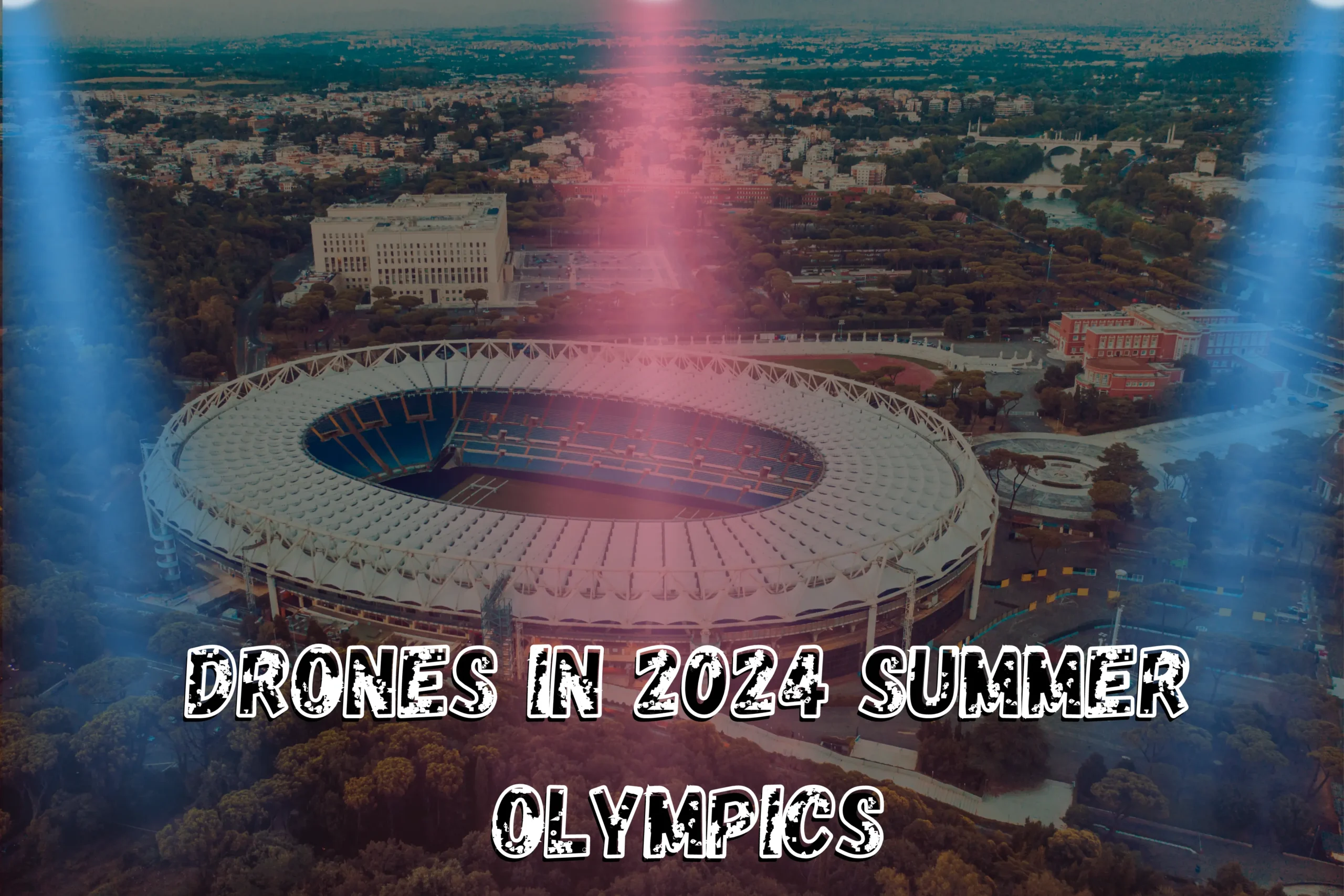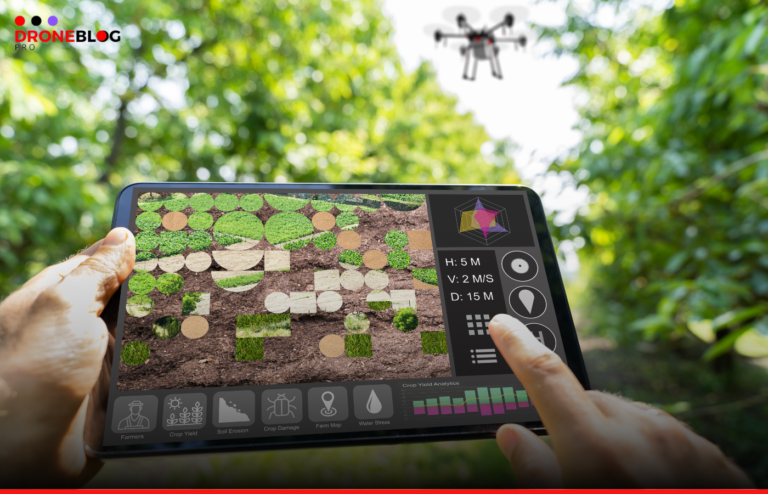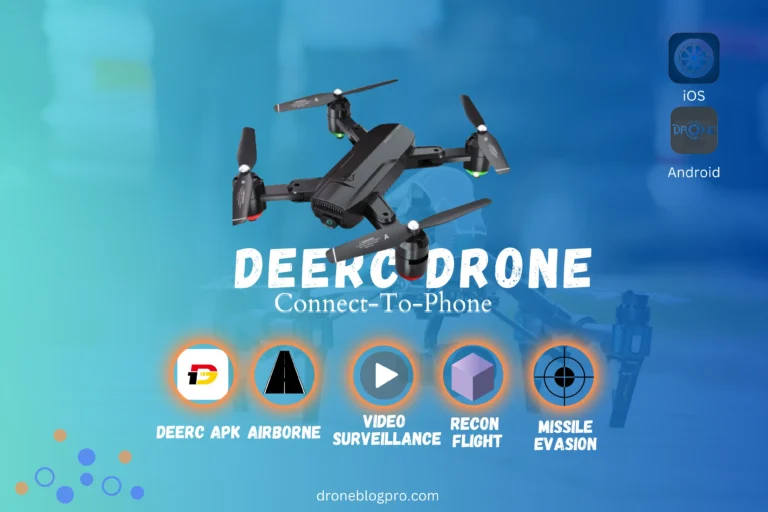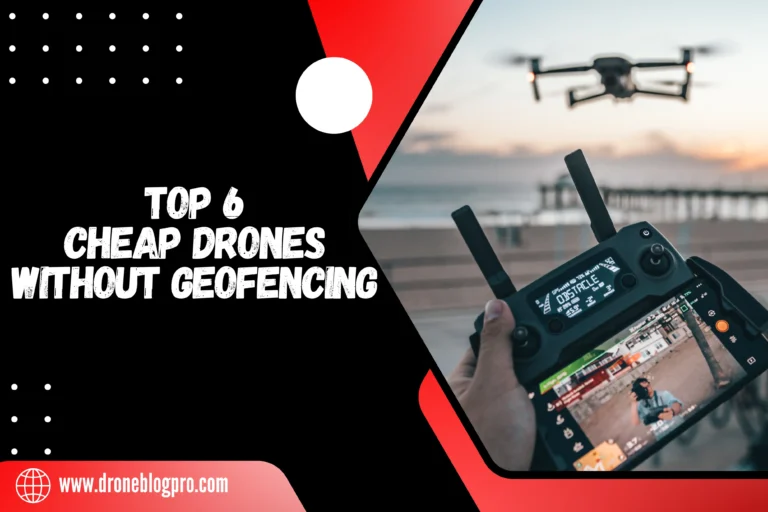As the world eagerly awaits the 2024 Summer Olympics in Paris, an unexpected storm is brewing on the opposite side of the globe in the azure waters of Teahupo’o, Tahiti. While the spotlight remains fixated on Paris, the controversy surrounding the surfing events in French Polynesia has captured international attention.
In the quest to find a sustainable and effective solution for the controversial surfing events at the 2024 Summer Olympics in Teahupo’o, Tahiti, organizers have explored various avenues. Despite setbacks, such as the environmental damage caused by an alternative barge, a groundbreaking proposal has emerged, pointing towards an unexpected ally – drones.
Despite concerns from environmentalists and drone advocates, Paris 2024 president Tony Estanguet affirmed in a Reuters article published on Dec. 20 that alternative options, including judging from the shore with the aid of cranes and drones, have been discarded.
Drones in 2024 Summer Olympics
Unlike other Olympic events set to unfold in Paris or elsewhere in France, the Tahitian surfing venue is a staggering 16,000 kilometres away, residing in a time zone of its own. The remoteness of Teahupo’o has become a focal point of one of the most significant controversies of the 2024 Summer Olympics.
Efforts to address the ecological concerns surrounding the construction of a judging tower in Teahupo’o have faced challenges, with even alternative solutions like the use of a barge inadvertently causing damage to the fragile coral reefs. In response to these hurdles, offers from French towns on the West Coast, including Lacanau and La Torche, to host the surfing events have been considered.
The Unseen Potential of Drones
Despite the president’s stance, some speculate that Estanguet may need to grasp the capabilities of drone technology fully. The reference to the DJI Mavic 3’s 28x Hybrid Zoom highlights the potential of drones to provide views comparable to those from a tower, even at distances closer than 900 meters. This raises questions about whether the latest advancements in drone technology could offer a compromise between tradition and innovation.

The Coral Conundrum
At the heart of the dispute is the construction of a judging tower, a necessity for the unique landscape of Teahupo’o, where the surf breaks offshore. Officials cite concerns that the proposed aluminium tower, physically attached to the reef, could inflict irreparable damage to the delicate coral reefs that define this pristine marine environment.
The Drone Solution: “Option B” Unveiled
In a move that could revolutionize the judging process, the International Surfing Association has put forth a visionary proposal, colloquially known as “Option B.” Drones would play a pivotal role in this alternative judging system, offering a novel approach to overcome the geographical constraints of Teahupo’o.
Drones in 2024 Summer Olympics-The Anatomy of “Option B”
As per the detailed document dated Dec. 9, 2023, judges under “Option B” would be stationed on a land-constructed tower. This tower would provide them with access to a diverse range of camera angles, including those from boom/crane or scissor lift cameras. To augment these perspectives, additional cameras mounted on boats, jet skis, and drones would be strategically positioned.
Extensive Coverage and Technical Precision
The proposed model underlines the potential for four Olympic Broadcasting Services (OBS) cameras, complemented by two OBS boat cameras, capturing both Main Tower and lagoon views. Jetski cameras and drones would further contribute to this comprehensive coverage, ensuring that judges have continuous or instant access to a spectrum of camera angles.
Over-Water Quandary
Given the geographical intricacies of Teahupo’o, the 2024 Summer Olympics judges find themselves in a peculiar position – perched over the water. This calls for the creation of an over-water judging platform, further fueling the controversy and sparking environmental concerns.
Protests and Petitions
The announcement of the over-water judging platform has not been met with approval, leading to widespread protests in Tahiti. An online petition, amassing over 230,000 signatures, serves as a testament to the community’s strong opposition to the potential ecological repercussions of such construction.
Seeking Solutions
In response to the mounting backlash, organizers have been exploring alternative solutions. However, each attempt, including the construction of an alternative barge, has faced challenges, resulting in unintended consequences such as additional damage to the coral reefs.
The Proposal of Progress
Amidst the tumult, a groundbreaking proposal has emerged from the International Surfing Association – “Option B.” This visionary approach advocates for a departure from traditional judging towers and envisions the extensive use of drones for evaluating surfing events. The proposal aims to mitigate environmental concerns while preserving the integrity of the judging process.
The Technological Edge: DJI Mavic 3
Highlighting the technological prowess of the proposal, drones equipped with advanced features like the DJI Mavic 3’s 28x Hybrid Zoom would play a crucial role. This technology promises to bridge the gap between traditional judging towers and the over-water platform, providing judges with detailed and immersive views.
A Plea to Save the Reef: Can DJI Make a Difference?
As protests persist during the construction of the tower, a thought-provoking suggestion emerges: Could the 2024 Summer Olympics become a platform for positive change? Some propose a unique opportunity for DJI, a prominent drone manufacturer, to send a free DJI Mavic 3 to Estanguet. This symbolic gesture could not only showcase the capabilities of drones but also serve as a potential solution to the ongoing controversy, offering a compromise that addresses both broadcasting needs and environmental concerns.

Preserving Tradition and Embracing Innovation
While “Option B” presents a compelling case for embracing drone technology to address environmental concerns, the decision-making process is complex. Paris 2024 president Tony Estanguet’s reservations about alternative methods underscore the delicate balance between preserving tradition and embracing innovation in the world of Olympic sports.
The Ongoing Debate: Balancing Ecological Impact and Technological Advancements
As debates continue, the fate of Teahupo’o’s coral reefs hangs in the balance. The controversy surrounding the 2024 Summer Olympics surfing events has not only become a battleground for environmentalists and sports enthusiasts but also an arena where tradition collides with the potential for technological advancements, epitomized by the use of drones. The coming months will reveal whether “Option B” becomes the beacon for a new era in surfing events or if traditional practices will prevail.
The Drone Revolution
“Option B” introduces a paradigm shift where judges remain on solid ground, accessing a multitude of camera angles through drones, boats, and other innovative means. The use of advanced drone technology, exemplified by the DJI Mavic 3’s 28x Hybrid Zoom, could offer judges unparalleled views without compromising the ecological balance.
The Balancing Act
Despite the potential benefits of drone-based judging, the construction of the controversial aluminium tower is proceeding. Paris 2024 president Tony Estanguet’s reservations about alternative methods and the importance of maintaining broadcasting quality add further complexity to the ongoing debate.
Conclusion-Drones in 2024 Summer Olympics
The use of drones in the 2024 Summer Olympics is an ever-discussionable topic. As protests persist in Tahiti and the construction moves forward, the 2024 Summer Olympics may find itself at a crossroads – balancing tradition and innovation, environmental preservation and sporting fairness. The fate of Teahupo’o’s coral reefs hangs in the balance, making this controversy a defining narrative for the upcoming Olympic Games.
As construction continues amid the protests, the ultimate decision on the judging methodology for the surfing events remains uncertain. The coming months will reveal whether the allure of tradition prevails or if innovative solutions, symbolized by drones, can pave the way for a more sustainable and technologically advanced future in the world of Olympic surfing. The clash of perspectives and the ongoing construction underscore the intricacies of navigating change in the pursuit of hosting memorable and environmentally conscious global events.


![Why is DJI Mini 2 Battery Not Charging? [QUICK FIXES]](https://droneblogpro.com/wp-content/uploads/2024/01/2-768x512.webp)
![How To Spot A Police Drone At Night? [Updated Guide 2024]](https://droneblogpro.com/wp-content/uploads/2023/12/Copy-of-Untitled-Design-768x512.webp)




2 Comments